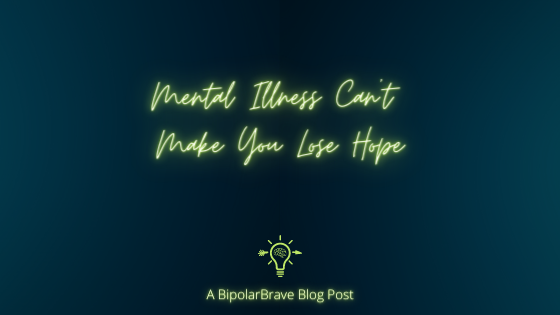On a Facebook group post, a person expressed how they were losing hope in their mind. While I cannot disprove their perspective, I disagree with that philosophy. Here’s my take:
Your heart is the primary hope-cultivator, not your mind
Hope starts in the heart, and your heart is where the will and seat of desire are. So when hopelessness moves to your mind, you have a case of despair. When you can’t think or condition, practice, apply and motivate yourself out of a clinically depressive state of mind (where medications are needed), your heart isn’t going to follow. You have to reset your mind with medicine and therapy to get back into working order. Like a bicycle with gears, your mind and heart have to be aligned in spirit to work together to get out of despair. If one is in despair, the other may follow.
Your heart and mind are connected, but your mind does little to catalyze hope
Like riding a tandem bike, the mind steers itself and the heart. The heart can only follow in the direction of the mind. And if the heart isn’t doing its part to pedal and enjoy the ride, it’s weighing the mind down and holding both back from moving forward. The heart has to keep up, but not disingenuously. For it’s the earnest heart that will make the pedaling from the rear that much easier for the mind to steer and get going. Attitude is everything. As Charles Swindoll says, “I am convinced that life is 10% what happens to me and 90% how I react to it.”
Your mind’s limitations and mental dysfunction have little to do with your heart’s hope
When those in a clinically depressed, manic, or psychotic state are out of reality or under the weight of stressors, hope can still be cultivated, but survival is more important. In those states, our minds are in a mode of just trying to survive. Don’t get me wrong, hope is fundamental in elevating our sense of worth and purpose and making the endurance of a depressive state bearable. However, our mental illness is not contingent on hope. Nor can our mental illness dictate our state of hope. Mental illness will wrestle with our hearts and if we let our hearts be overcome by mental illness’s lies or half-truths, they will get discouraged. But you don’t have to let the heart get there.
You have the power and will to choose hope, regardless of your current mental state.
That is why psychotropics and medicines for our mental state don’t affect our character or our choices at our core. Maybe contrary to popular belief, at the core of who we are, we choose our actions. Our beliefs may be faulty due to mental illnesses, but ultimately we are responsible for our actions, attitudes, and state of hope. Do you hope? You can hope in a state of depression. Tell your heart to hope and trust in God. Talk to your soul and tell it to hope in God. You’ll find that the directive of your inner voice will cause hope to follow. Just try it.
“Why am I discouraged? Why is my heart so sad? I will put my hope in God! I will praise him again— my Savior and my God!” Psalm 42:5, 42:11, 43:5 (NLT)
When we practice therapy and good realistic self-talk, we are speaking God’s truth and can claim hope and cultivate it in our hearts and minds.
This is good news! If you feel hopeless in mind and/or heart, know that it’s not impossible or out of reach for you to begin hoping again. Try putting your faith to the test and tell yourself, aloud, “I can do all this through Christ who is strengthening me. I will put my trust and hope in God, my Creator, Redeemer, Sustainer. He is the One I can ultimately count on, not my heart, or my mind. He is my source of hope, temporary and eternal. I can’t will myself to hope more perhaps, but I can stretch my faith and ask Him to help me, and prove to me He is worth hoping in.”
Hope is not tangible, or is it?
When you hope for something, it hasn’t happened yet. But you hope the day is a good one. Does it turn out to be? That depends on your perspective and attitude. If you’re able to focus on Jesus, your day is going to turn out to be good, regardless of situations and circumstances. You can count on circumstances changing. You don’t have to hope they will, they will. Life goes by, time marches on, and things, events, and people change. It’s part of the cycle of life, of course. So hoping and wishing that situations change for the better, will be pretty much a guarantee, provided you choose better pathways when the opportunities arise.
What are your thoughts? Can mental illness “make you” lose hope or not? Share with me in the comments and let’s discuss.

What do you think?